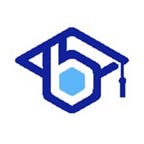Would You Seek Academic Help If You Were A Student In Your Class? | Bright Classroom Ideas
It’s ironic. The students that need it, often are the ones that do not seek academic help. Maybe it’s fear, embarrassment, or a lack of the self-awareness to decipher that academic help is needed.
Helping Checklist
As an instructor, I search for ways to be proactive in addressing this dilemma. Here are a few questions that help me think more intentionally about helping my students:
- Do your students help requests include an apology (thanks to Blake Harvard for posing such a critical question)?
- Do you model help-seeking behaviors to students?
- Do you attempt to learn more about student help-seeking?
- Do you reinforce appropriate help-seeking behaviors (use strategies to increase the behavior)?
- Do you set boundaries on helping?
- Do you provide safeguards to prevent help abuse?
- Do you examine the underlining need for the academic help request?
I find it’s okay to ask the questions in any order and and at any time. The key is to take the time to routinely ask the questions. I hope that other teachers use the checklist as well. Feel free to add or omit questions to adjust the checklist as needed. One final check-in question I’ve considered recently:
Would you seek academic help if you were a student in your class?
I love the snapshot of helping habits the questions provide. For me, the checklist reveals how I strive to learn more (via examining and sharing research trends), reinforce appropriate help-seeking (as I acknowledge the courage required and the academic performance gains), and establish helping boundaries (such as designated times and procedures to avoid an unhealthy ‘help no matter what’ philosophy). More importantly, the checklist let’s me know what helping areas are in need of tweaking.
Strategies for Tweaking the Helping Process
Here are ideas from previous research to help fine-tune classroom help-giving:
One study examined “I don’t understand” and related student help requests in a science lab course. Key ways to use help-seeking to improve student understanding included:
- Tailoring help requests to involve details about the nature and source of the concern (in order to provide the concrete areas for the helper to address).
- Expecting the helping process to take time. A student saying ‘I get it’ may not indicate that the helping process is over (as students may say this prematurely before a true level of understanding is reached).
- Anticipating that the helping process may be less than immediate or direct. Helping students ‘get it’ may involve an indirect approach (such as withholding the answer and providing hints or resources instead). Further, additional student practice (which may take the form of a supplemental activity or assignment) may be needed to appropriately address a help request.
2. Remind students what ineffective help-seeking involves
Another study examined student help-seeking while working on a programing task. Key characteristics of ineffective help-seeking included:
- A student seeking academic help before starting the task on his own
- A student making multiple help requests in short periods of time
- A student requesting help and neglecting to follow-through on the suggestions
- A student ignoring the need for help in lieu of performance factors (longer than norm task completion time, low scores, assignment mistakes, falling behind etc.)
Bottom Line
The 2 strategies rest on an investment from both the teacher and the student. Teachers must plan opportunities to explain helping expectations and outline the procedures that would make the process most effective for their classroom. Further, students must practice self-monitoring to meet the demands required for a meaningful helping process to occur.
References
- Lindwall, O., & Lymer, G. (2011). Uses of “understand” in science education. Journal of Pragmatics, 43(2), 452–474.
- Marwan, S., Dombe, A., & Price, T. (2020). Unproductive help-seeking in programming: What it is and how to address it. Paper presented at the 54–60.
Dr. Jennifer Davis Bowman holds a terminal degree in special education and a professional license in school counseling. With over 20 years in education, she has taught undergraduate courses that include Learners with Disabilities, Reading & Writing Foundations, and Introduction to Psychology.
Originally published at https://www.brightclassroomideas.com on February 9, 2021.
